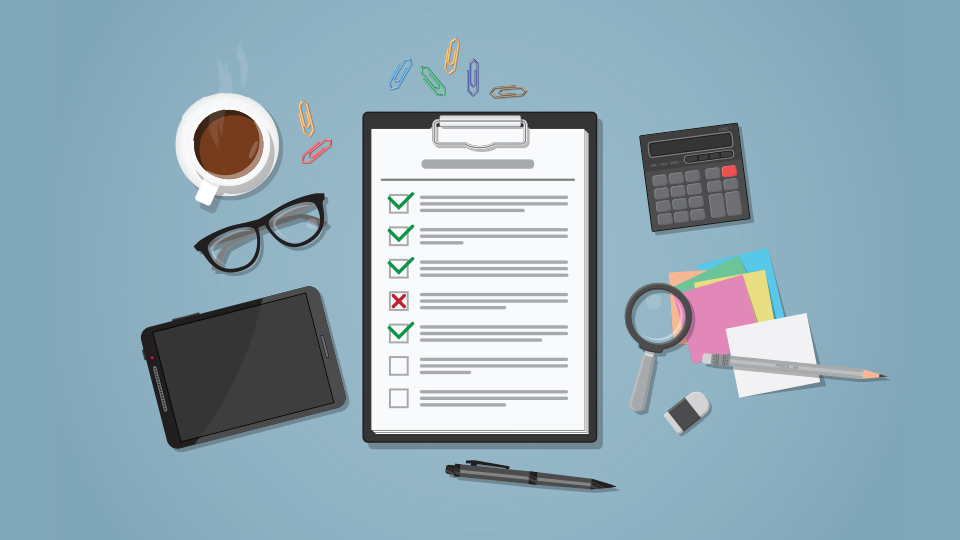Whether you’re a business owner, PAYE employee, or contractor, getting ready for the end of the financial year (EOFY) can be a busy time.
Preparing for EOFY is the perfect opportunity to take stock of your financial position and plan for the future.
To help you get ready for 2022 tax time, we’ve put together a checklist that will see you through EOFY and into the year ahead.
Personal tax and investments
- Work-related expenses: Compile all your work-related expenses, self-education and professional development expenses, and work-related subscriptions and memberships.
- Working from home hours: With events of recent years leading to a shift towards permanent quasi working from home arrangements, aim to reconstruct the number of hours you completed work from home during the year as this can be used to calculate deductions.
- Motor vehicle deductions: Ensure your logbook is up to date and valid. With a greater extent of working from home will come higher scrutiny by the ATO of such claims. If you are claiming a motor vehicle for work-related purposes, make sure you understand your entitlement to use the logbook or cents-per-kilometre methods.
- Pre-pay interest: Paying loan interest in advance on margin loans and geared investments can be a smart tax strategy. As margin loans are used to invest in shares, the loan interest can normally be claimed on tax.
- Pre-pay deductible expenses: Certain expenses such as annual income protection premiums, insurance, rebates, and licenses can also be prepaid, allowing a tax deduction for the current tax year.
- Share portfolio: Do you have any shares that can be sold at a loss to offset any capital gains you’ve realised this year? Tax-loss selling may be a useful strategy to help minimise your tax bill.
- Cryptocurrency: Be aware that any sale of cryptocurrency holdings is likely to lead to a taxable event, so compile your record of transactions. Much like shares, realising any losses prior to the end of the financial year can help offset capital gains from investments.
- EOFY statements for managed investments: Be aware that many of your EOFY statements will not arrive until after July 1. In fact, some are not released until several months later. Once in hand, they provide an ideal opportunity to review your overall financial situation.
- Summary of income and expenses: Prepare your profit and loss statement, remembering to fill in actual or estimated figures against each item, state whether your figures are GST inclusive or exclusive, and calculate the gross profit, total expenses, and net profit.
Superannuation
- Personal super contributions: You may be eligible to claim a tax deduction for personal contributions up to the concessional contributions cap of $27,500, which includes all employer contributions. You may also be eligible to make additional personal contributions from your after-tax salary up to the non-concessional contribution cap of $110,000 so long as your total superannuation balance is less than $1.7 million.
- Super co-contributions: Low to middle-income earners who make personal (after-tax) super contributions may be eligible to receive a government co-contribution of up to $500. The amount you receive depends on income and how much you contribute and will be automatically calculated and paid by the government.
- Employer salary sacrifice: Putting some of your pre-tax income into superannuation can have significant tax benefits. Your super fund will tax these contributions at 15 per cent (note, however, the additional 15 per cent levy for high income earners under Division 293), which may be lower than your marginal tax rate. The end of financial year is a good time to review your salary sacrifice arrangements for the new financial year to ensure you don’t exceed the concessional cap of $27,500.
- Carry forward provisions: If your total superannuation balance is less than $500,000 on June 30 of the year prior to the current one then you may be able to claim additional concessional contributions if you need not maximise your annual caps in the previous five financial years. Note that the furthest you can currently go back to look for excess cap space is the 2019 financial year.
- Spouse contributions: If you make contributions to your spouse’s super fund you may be able to claim an 18 per cent tax offset through your tax return. The maximum tax offset is $540. To be eligible, you must contribute a minimum of $3,000 and your partner’s annual income needs to be $37,000 or less.
Business
- Supplier invoices: Ensure all suppliers have invoiced you by June 30. Corporate entities are entitled to a deduction where the goods and services have been supplied during the financial year, even if the invoice has not yet been paid.
- Depreciation: Examine your depreciation schedule and see if any assets require writing off. Assess the effective life of assets (how long they can be used to produce income) to determine if they should be reallocated to a low-value assets pool to be depreciated for the life of its value.
- Staff bonuses: Bonuses determined and approved before the end of the financial year as unconditional and payable can be deducted in the current financial year.
- Government-related payments: There was continued COVID-related government support payments during the 2022 financial year. Remember that the income tax status of this assistance can vary depending on the program, with some being non-assessable while others being taxable.
- Small Business Digital Adaption Program (Victoria): A state government program which runs to July 18, 2022, allows eligible small businesses to obtain purchase rebates of up to $1200 to cover the cost of moving to digital products to assist your business, such as digital point of sale (POS) solutions or cloud accounting packages. Act fast, as the program will end sooner if funds are exhausted.
- Single Touch Payroll (STP): Before you finalise the declaration in STP-enabled software, clean up any anomalies and ensure all information is correct. You should check that employee information is accurate and that you are addressing overpayments, calculating super, and paying employees correctly.
- Temporary full expensing: Temporary full expensing allows eligible businesses to deduct the business portion of eligible depreciating assets purchased during the 2022 financial year. Note that these assets must be acquired and in place by year end.
- Loss carry back: Under loss carry back, eligible corporate entities can receive a refundable tax offset if they choose to carry back tax losses made in the 2021-22 financial year against tax paid for the 2018-19, 2019-20 or 2020-21 financial years.
- Bad debts: Before the end of the financial year, it is prudent to review your debtors listing for amounts unlikely to be recovered. Where you have taken all appropriate steps to recover the debt (the larger the debt, the more involved this process is), you can write off the amount as a bad debt. This does not preclude you recovering the amount in the future.
Talk to the tax experts
With expertise across all aspects of financial management, including tax, superannuation, and other investments, LDB can help individuals and businesses make the most of tax-time opportunities.
To find out more, contact LDB by phoning (03) 9875 2900 or sending us details via the contact form below.






